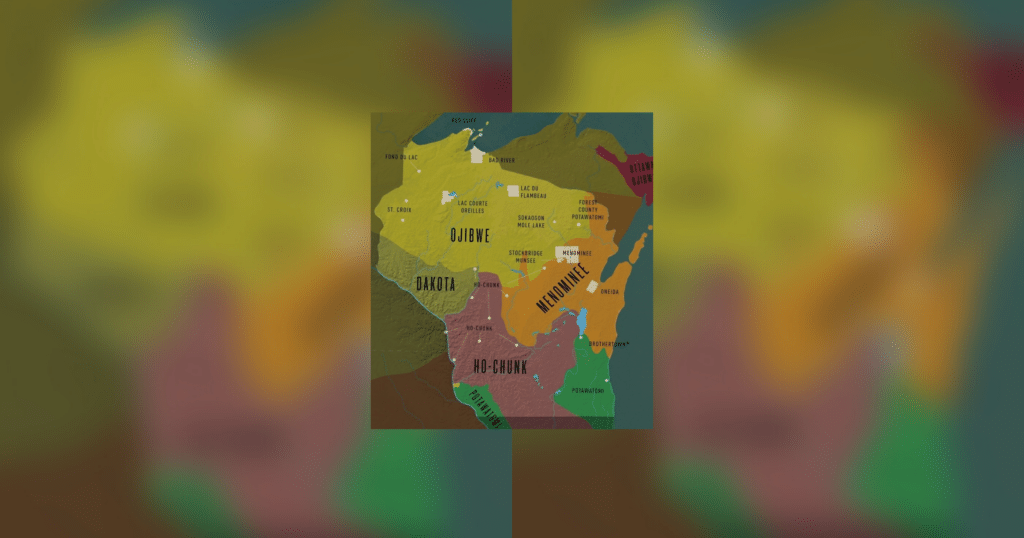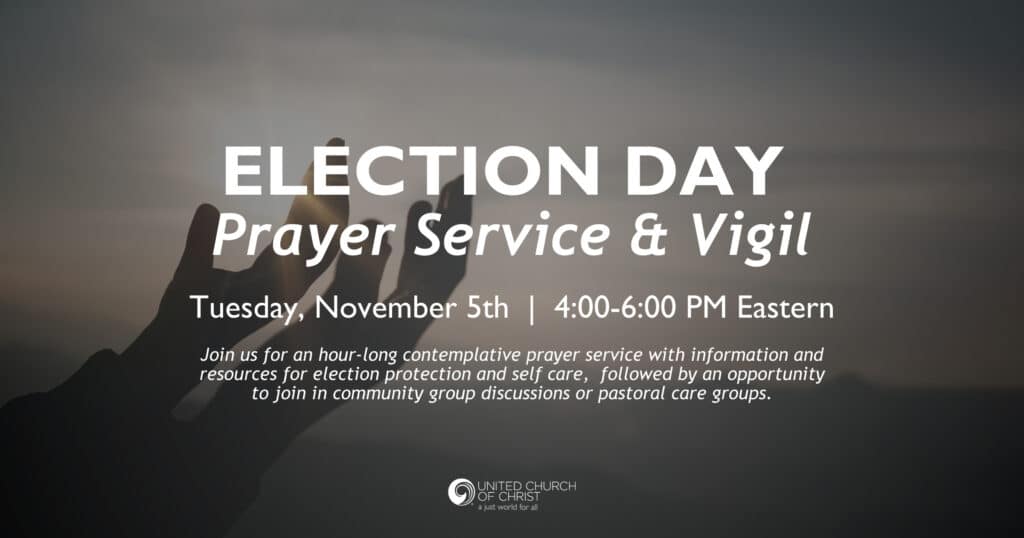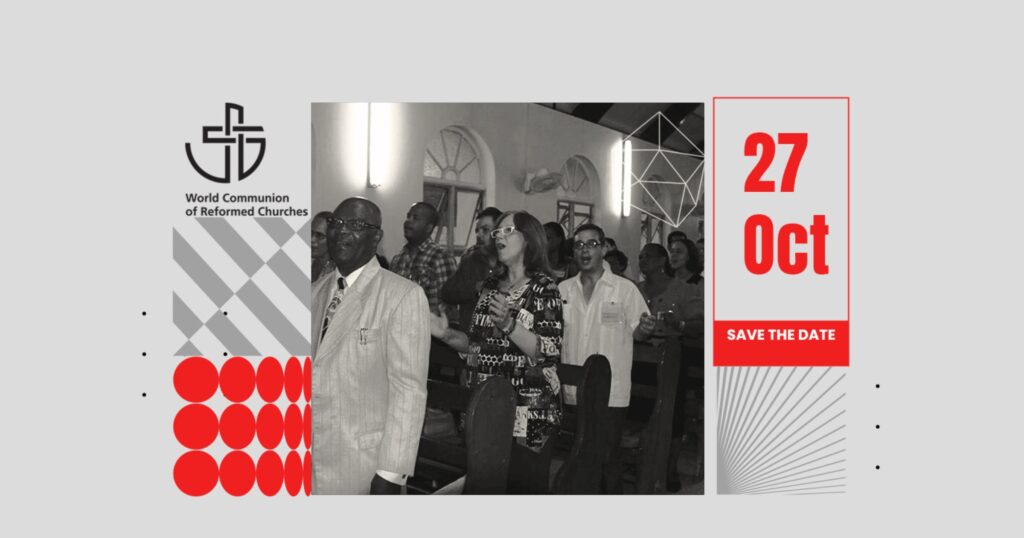With Indigenous guidance, Wisconsin churches face colonialism’s damage — and start to act
Activists at First Congregational United Church of Christ, Appleton, Wis., didn’t know much about the Doctrine of Discovery. Then they heard about it from another UCC member — Larry Littlegeorge of the Indigenous Ho-Cak Nation.
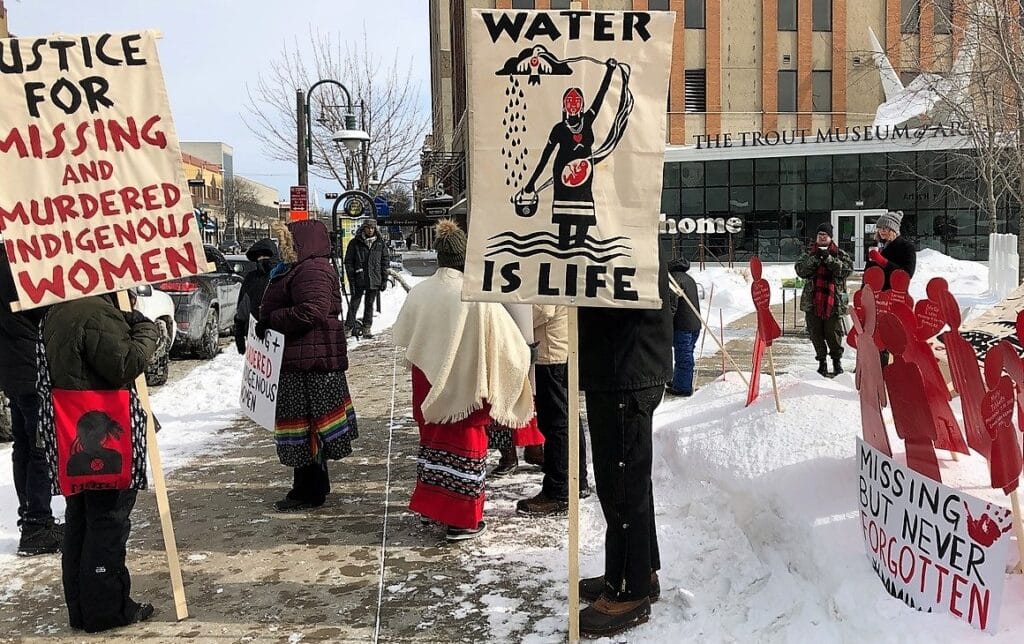
Since then, their anti-racism work has never been quite the same.
The congregation’s delegates heard Littlegeorge speak passionately at a Wisconsin Conference annual meeting. They came home “on fire,” said Phil Gabrielson, who was one of them.
As a result, the church — which is predominantly white — has, among other things:
- Formed an active Indigenous Peoples’ Allies Committee.
- Shown up at a local rally to focus attention on missing and murdered Indigenous women.
- Funded a scholarship for a student at College of Menominee Nation — following conversations with Wisconsin’s Menominee Tribe.
- Scheduled a listening appointment with the tribal chair of the Brothertown Nation.
- Placed a prominent land acknowledgment in its Sunday bulletin each week.
Spreading the word
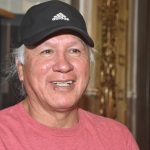
Churches like First Congregational are taking Indigenous-justice issues more seriously than ever, thanks in part to the work of Littlegeorge and the Alliance for Justice, which he leads.
Started under the umbrella of the Conference, the Alliance is now an independent nonprofit. By invitation, its members visit UCC churches — and community groups, too — to tell the story of the Doctrine of Discovery and its results.
A 2019 UCC Neighbors in Need grant of $5,000 helped the Alliance:
- Complete the process of becoming a 501(c)3 nonprofit.
- Survey all UCC churches in the state about their knowledge of the Doctrine of Discovery.
- Further develop the curriculum it uses to teach about the doctrine.
- Plan a major, four-day “Restoring Right Relationship with Mother Earth” immersion experience to be held in October. Now filled to capacity, the retreat will be held at the former Pilgrim Center. The church camp was recently renamed Daychola Center, after consultation with Littlegeorge, using the Ho Cak word for the lake where it is located.
The COVID-19 pandemic interrupted the Alliance’s work of traveling and teaching about the doctrine and its legacy. But Littlegeorge, a member of Ho Cak UCC in Black River Falls, said the Alliance hopes to resume soon. More than a half-dozen churches are waiting for presentations, in which “we teach them a lot about the true history of the United States,” he said.
Local steps churches can take
In one exercise, for example, participants get comfortable on an island of blankets arrayed in the center of a room. Then, over 90 minutes, they experience what Littlegeorge calls “the continuing story of colonization from the perspective of Indigenous people.” They hear about genocide, biological warfare, broken treaties, forced removals and assimilation, environmental damage — all that happened in history, and continues today. Participants, as though they themselves were affected, are gradually instructed to leave the island of blankets — which grows smaller and smaller.
In another exercise, sacred Indigenous objects aid conversations in “talking circles”: a blanket, tobacco, sweetgrass, sage, an eagle feather, a bowl of water, a rock from part of the Missouri River threatened by an oil pipeline.
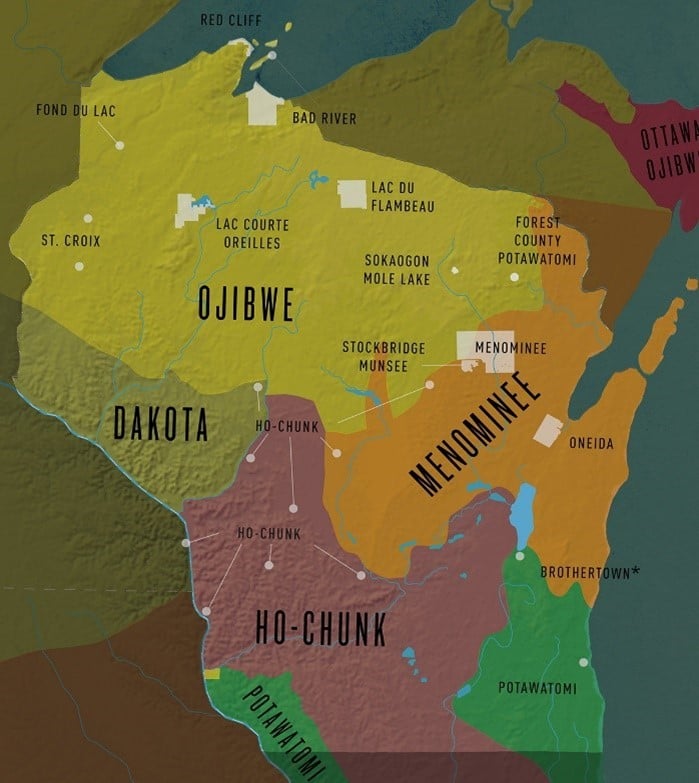
The Alliance hopes its teaching will help people “recognize the local dimension of this work,” Littlegeorge said.
Karen Miller, a member of Stockbridge-Munsee Community of the Mohican Nation and of First Congregational UCC in Menomonie, Wis., said there are “many steps congregations can begin to take down the road to reconciliation and reparations.” She said these include:
- “Knowing the history of the land that your congregation sits on. Who were the original inhabitants, under what treaty or treaties did the land become available to white settlers?”
- “Do descendants of these original inhabitants still live in the area? Do you have a relationship with them?”
- “Have you developed a land acknowledgment recognizing the original inhabitants of the land?”
‘Dialogue has been opened’
In Appleton, the Alliance’s message “fell on fertile ground,” Gabrielson said. The congregation there had a longtime partnership with Christians in Kenya, marked by genuine mutual listening and relationship. Also, said Eilene Hoft-March, another member there, the church had made regular trips to the Pine Ridge Reservation since 2012. Those, she said, were for “service to the Oglala Lakota residents” and “learning about Indigenous history, cultures and current social issues.”
Still, said Gabrielson, Littlegeorge’s 2018 Wisconsin Conference speech about the Doctrine of Discovery, followed by a 2019 Conference vote to repudiate the doctrine, fired up First Congregational in a new way. So did a 2019 visit from Navajo speaker Mark Charles, author of the book “Unsettling Truths,” which members of the church had read.
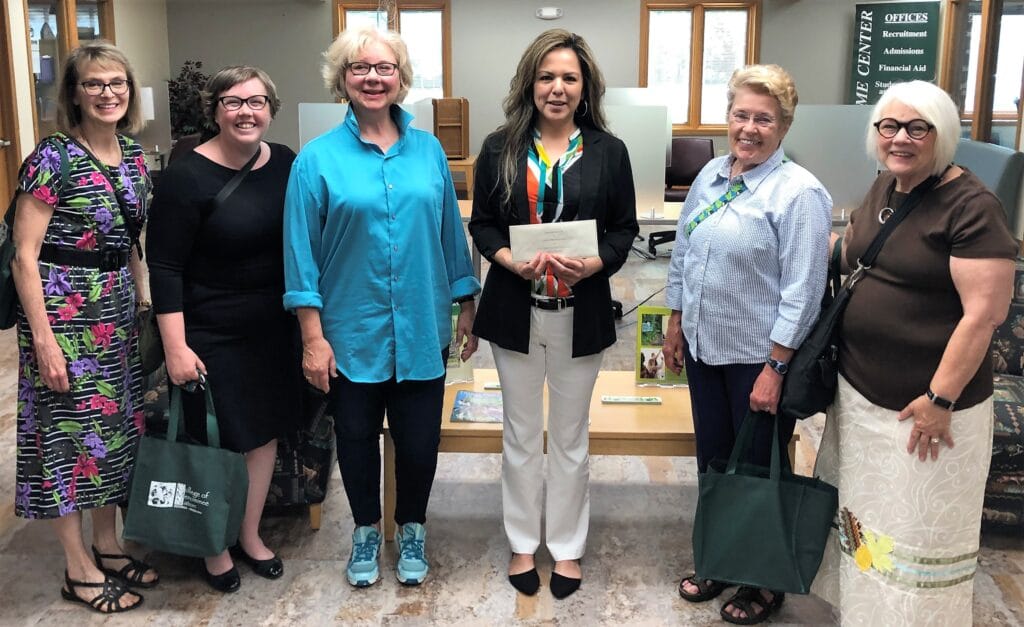
“Many of us were obliged to confront the ways in which Indigenous culture has been obliterated and re-written by white colonization, but more uncomfortably still, to acknowledge our own implication in what we thought was a history attributable to others,” Hoft-March said.
“COVID has slowed us down a bit, but our Indigenous Peoples’ Allies Committee is looking for ways to educate as many in our congregation as are open to these revised understandings and to find ways in which motivated congregants can address or redress the injustices that have lingered and grown over 400 years.”
For Littlegeorge, debunking the Doctrine of Discovery is a life’s calling. He said he appreciates the UCC General Synod for repudiating the doctrine in 2013. And he appreciates local churches that want to learn. “I am glad this dialogue has been opened and we just might have something to say that might help you on your life’s journey.”
Most churches will receive the Neighbors in Need offering on World Communion Sunday, Oct. 3. One-third of NIN funds support the Council for American Indian Ministry. Two-thirds are used by the UCC’s Justice and Witness Ministries to provide grants to UCC churches and organizations leading justice initiatives, advocacy efforts and direct service projects in their communities. Online donations can be offered here. Grant applications, with an Oct. 1 deadline, are available here.
Related News
UCC to offer Election Day Prayer Service and Vigil
On Election Day, Nov. 5, join the Rev. Karen Georgia A. Thompson together with United Church...
Read MoreGoing beyond the blessing: Churches emulate St. Francis’ care for animals
https://www.youtube.com/watch?v=lu3LYwhLxCo UCC News presents a video news story on the...
Read MoreUCC leaders invite all to global celebration of Reformation Sunday
This Reformation Sunday, leaders from the United Church of Christ will participate in a global...
Read More